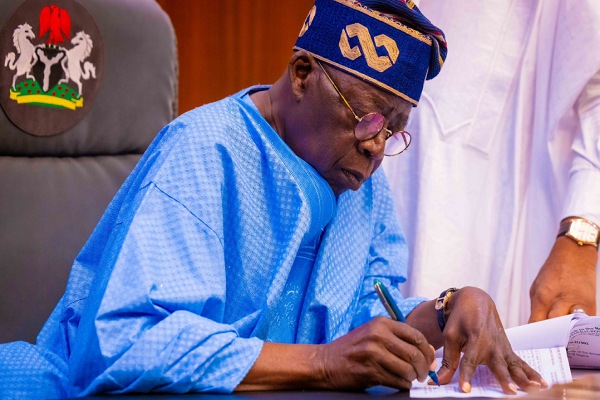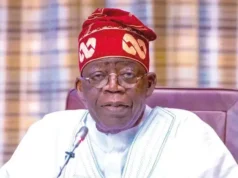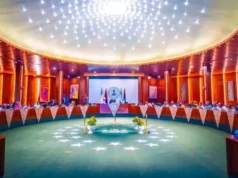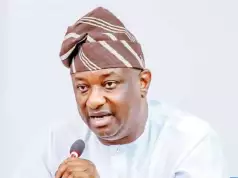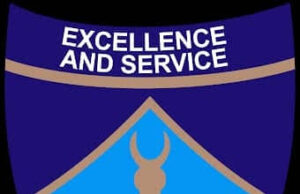The Federal Government, yesterday, projected N26 trillion for the 2024 budget which it has targeted to submit to the National Assembly before December 31, 2023.
Minister of Planning and Budget, Atiku Bagudu, made the disclosure at the end of the Federal Executive Council (FEC), presided over by President Bola Tinubu, while briefing State House Correspondents alongside his colleagues from Ministry of Information, Mohammed Idris, Minister of Finance and Coordinating Minister of Economy, Wale Edun, Works and Housing Dave Umahi, Industry, Trade and Investment, Doris Uzoka-Anite, and Labour and Employment, Simon Lalong.
He explained: “The aggregate expenditure is estimated at N26.01 trillion for the 2024 budget, which includes statutory transfers of N1.3 trillion non-debt recurrent expenditure of N10.26 trillion. Debt service estimated at N8.25 trillion as well as N7.78 trillion being provided for personnel pension cost.”
Bagudu further explained that: “Debt service increased because N22.7 trillion Ways and Means was securitised meaning it became a Federal Government debt at 9 per cent. So that is easily about N2.1 trillion as debt service. Equally personnel costs are going up because of the transfers pursuant to the agreement with the Minister of Labour who spoke about and indeed anticipation that further agreement with labour might increase the salaries and pension increase.”
He said Council also approved the 2024-2026 medium-term expenditure framework (MTEF) and fiscal strategy papers (FSP). He explained that the executive is required by the Fiscal Responsibility Act to present to the National Assembly ahead of a budget presentation, a document which will provide the medium term economic outlook for the economy.
He said FEC made assumptions about reference price for the price of crude oil which is at $73.96 as well as an exchange rate of N700.
Minister of Finance and Coordinating Minister of the Economy, Edun, said council approved the application for financing of $1.5 billion from International Development Association (IDA), a lending arm of the World Bank. And in particular, the International Development Association which is really the virtually free or zero interest lending arm or financing arm of the World Bank.
On the background that led to the borrowing, he said: “The world today is one of high interest rates, as the developed world looks to fight inflation. They do it by restricting money, keeping interest rates high so that you can get inflation down. What that means is that interest rates for everybody else, become not just high but very painful, if not affordable within that context.
“Nigeria has been able to make the kind of macro economic moves, has been able to take the tough decisions to restore balance in the economy in the government’s finances that has warranted support, that has gender and has elicited even support from the multilateral development bank’s and is on the basis of that, that the World Bank is willing to consider and to process on our behalf $1.5 billion of concessional financing, relatively cheap financing and financing that will be dispersed relatively quickly.
“And that was what was presented to the Federal Executive Council and the members approved that we go ahead with that financing even that it is affordable.”
He said Council also approved an $80 million financing from the African Development Bank.
Edun said: “This financing is for a project in Ekiti called the Ekiti Knowledge Zone Project – EKZ. An EKZ that is basically to support young people and their quest to take on technology, to use it, to be employed, to be trained and to benefit from being part of the knowledge economy, being part of the technological wave that is present very much in Nigeria, which is becoming a bigger and bigger share of the economy. “So it’s $80 million to help the young people in the sector of Knowledge Economy technology and communications generally.”
Umahi on his part, said FEC approved the continuation of inherited road projects by past.

